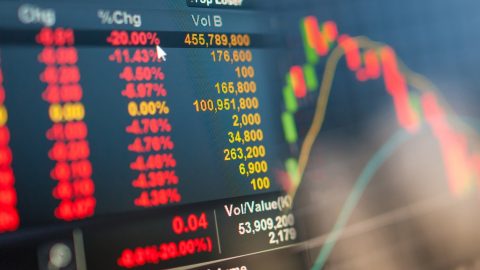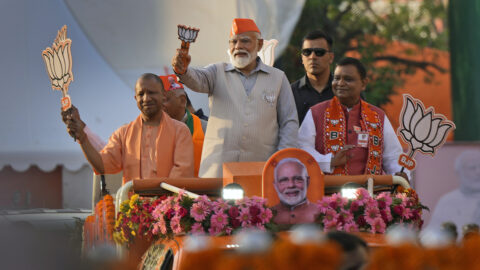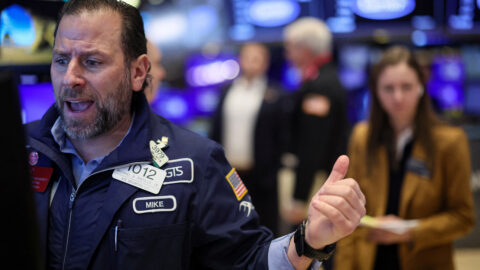
Felix Dornaus, Senior Fund Manager Emerging Markets Bonds
I would like to summarise my learning points from the presentations by the International Monetary Fund in Washington on 20 to 23 April 2018.
Market barometer: I would call the sentiment as “hold” to cautiously optimistic. The market participants do not expect any surprises in either direction. The yield differential between emerging and developed markets is still seen as “attractive” in favour of emerging markets. The IMF regards equities, corporate bonds in hard currency, and government bonds in hard currency from emerging markets as the most interesting asset classes in the emerging markets segment, at roughly equal weightings. The investors’ opinion on Europe, generally speaking, is remarkable positive. As far as specific issues are concerned, the IMF is regarded as well-disposed towards Greece; here, a diffuse “positive surprise” is expected.
China: there is currently no “real” dialogue in the trade conflict between the USA and China, with potential for more friction. The tariff increases announced by the USA so far would for now come with only homoeopathic effects on the GDP of both countries. One cannot help the feeling again that the market is caught up in ill-advised complacency with regard to China. Especially the lead that China has generated in the development and use of artificial intelligence is being massively underrated. In general, one gets the feeling that foreign investors are still underinvested in China.
Nafta: there are numerous open questions with respect to the efforts made by the USA to reform the NAFTA. At this point, the negotiations are unlikely to be terminated prior to the summer break of the US Congress (scheduled to start on 30 June 2018).
Latin America: investors seem to be overweighted, but I would warn against underestimating possible negative surprises with regard to the imminent presidential elections in Mexico and Brazil.
Turkey: scepticism by investors despite an exceedingly positive presentation by the Turkish delegation. I had the impression that it was based more on hope than on hard facts that the economic situation would improve. The market participants tend to aim for a neutral positioning.
USA politics: the Democrats are currently expected to re-gain the House majority in the midterm elections in November 2018. In 2020, Donald Trump seems to want to run again as candidate for the Republicans.
Sanctions: the market participants envisage further sanctions against Russia, although they do not expect them to be directed against the sovereign. Also, more and stronger sanctions against Venezuela and the government and its beneficiaries are expected.
Commodities: the market currently perceives the oil price as kept artificially high. In general, commodities currently harbour upside risk rather than downside risk.
Market “darlings“: Egypt, Nigeria, Argentina
Market “loser“: Romania
My conclusion:
Emerging markets hard currency bonds remain attractive. At the moment, I do not expect any significant or sustainable shocks to the market, triggered by unexpected developments in the US interest market. Due to rising interest rates, I focus on those countries that have reduced their refinancing risk in our hard currency emerging markets funds.
Legal note:
Prognoses are no reliable indicator for future performance.
Legal disclaimer
This document is an advertisement. Unless indicated otherwise, source: Erste Asset Management GmbH. The language of communication of the sales offices is German and the languages of communication of the Management Company also include English.
The prospectus for UCITS funds (including any amendments) is prepared and published in accordance with the provisions of the InvFG 2011 as amended. Information for Investors pursuant to § 21 AIFMG is prepared for the alternative investment funds (AIF) administered by Erste Asset Management GmbH pursuant to the provisions of the AIFMG in conjunction with the InvFG 2011.
The currently valid versions of the prospectus, the Information for Investors pursuant to § 21 AIFMG, and the key information document can be found on the website www.erste-am.com under “Mandatory publications” and can be obtained free of charge by interested investors at the offices of the Management Company and at the offices of the depositary bank. The exact date of the most recent publication of the prospectus, the languages in which the fund prospectus or the Information for Investors pursuant to Art 21 AIFMG and the key information document are available, and any other locations where the documents can be obtained are indicated on the website www.erste-am.com. A summary of the investor rights is available in German and English on the website www.erste-am.com/investor-rights and can also be obtained from the Management Company.
The Management Company can decide to suspend the provisions it has taken for the sale of unit certificates in other countries in accordance with the regulatory requirements.
Note: You are about to purchase a product that may be difficult to understand. We recommend that you read the indicated fund documents before making an investment decision. In addition to the locations listed above, you can obtain these documents free of charge at the offices of the referring Sparkassen bank and the offices of Erste Bank der oesterreichischen Sparkassen AG. You can also access these documents electronically at www.erste-am.com.
Our analyses and conclusions are general in nature and do not take into account the individual characteristics of our investors in terms of earnings, taxation, experience and knowledge, investment objective, financial position, capacity for loss, and risk tolerance. Past performance is not a reliable indicator of the future performance of a fund.
Please note: Investments in securities entail risks in addition to the opportunities presented here. The value of units and their earnings can rise and fall. Changes in exchange rates can also have a positive or negative effect on the value of an investment. For this reason, you may receive less than your originally invested amount when you redeem your units. Persons who are interested in purchasing units in investment funds are advised to read the current fund prospectus(es) and the Information for Investors pursuant to § 21 AIFMG, especially the risk notices they contain, before making an investment decision. If the fund currency is different than the investor’s home currency, changes in the relevant exchange rate can positively or negatively influence the value of the investment and the amount of the costs associated with the fund in the home currency.
We are not permitted to directly or indirectly offer, sell, transfer, or deliver this financial product to natural or legal persons whose place of residence or domicile is located in a country where this is legally prohibited. In this case, we may not provide any product information, either.
Please consult the corresponding information in the fund prospectus and the Information for Investors pursuant to § 21 AIFMG for restrictions on the sale of the fund to American or Russian citizens.
It is expressly noted that this communication does not provide any investment recommendations, but only expresses our current market assessment. Thus, this communication is not a substitute for investment advice.
This document does not represent a sales activity of the Management Company and therefore may not be construed as an offer for the purchase or sale of financial or investment instruments.
Erste Asset Management GmbH is affiliated with the Erste Bank and austrian Sparkassen banks.
Please also read the “Information about us and our securities services” published by your bank.



